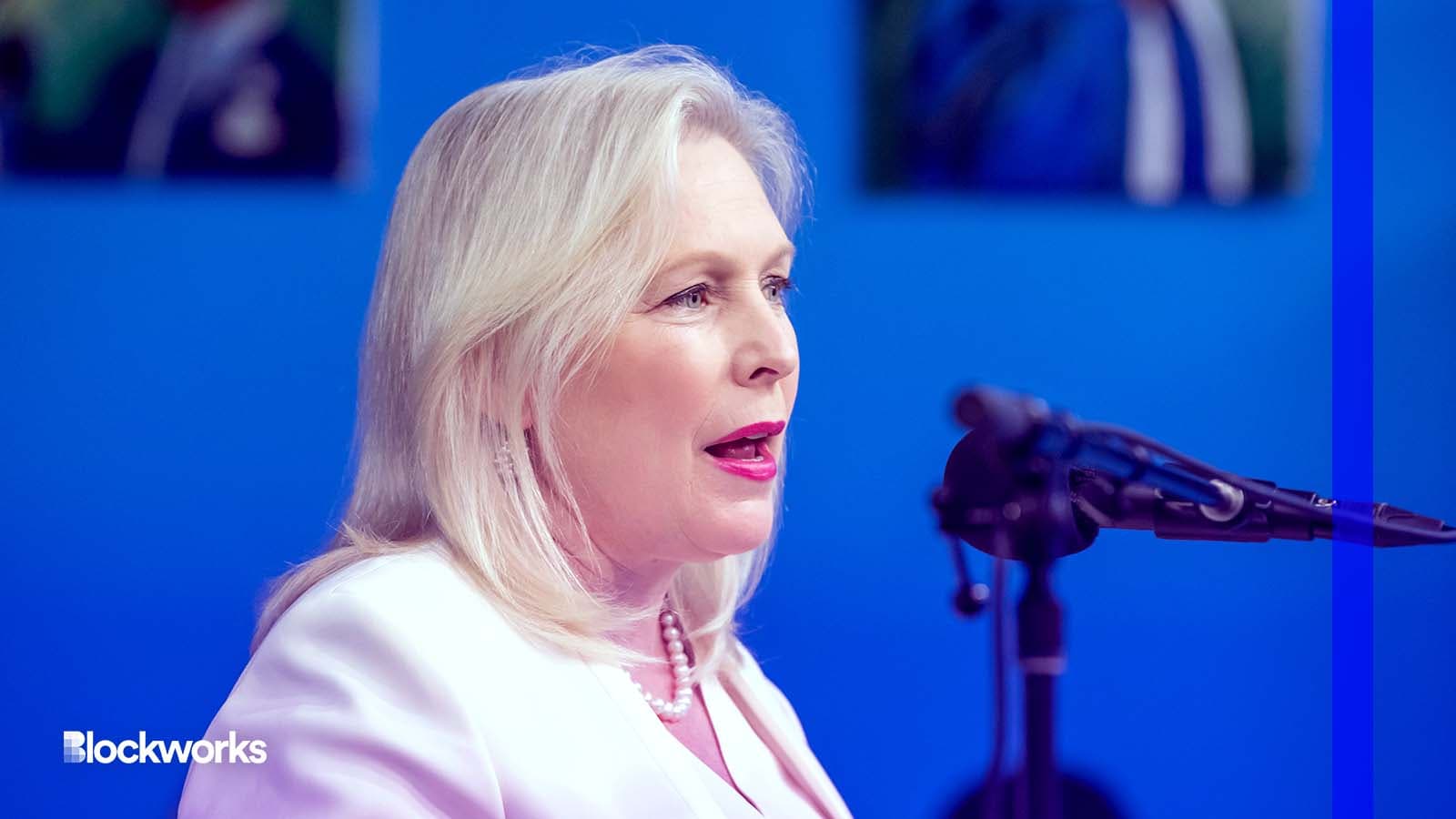Gillibrand, Lummis Plan Revamped Crypto Bill for April
The revised version is going to be more detailed when it comes to defining tokens, Sen. Gillibrand said

Ron Adar/Shutterstock.com modified by Blockworks
A revamped bipartisan effort to bring sweeping regulation to cryptocurrency is going to make the rounds on the Hill this spring, senators say.
Sens. Cynthia Lummis, R-Wyo., and Kirsten Gillibrand, D-N.Y., co-sponsored the Responsible Financial Innovation Act, first introduced to the Senate in June. A revised version of the proposed law will land on Senate desks in mid-April, Lummis said Thursday in Washington, DC.
The revised version is going to be more detailed when it comes to defining tokens, Gillibrand said, speaking alongside Lummis at the Milken Institute Future of Digital Assets Symposium.
The new bill also has clarified some of the definitions regulators and industry members found troubling, Lummis said, not mentioning any specific examples of new language.
“We are trying to address some of the concerns we heard, we are going to try to build out some of the regulatory framework that we left for studies in the first version, and so it might also be more thorough than the first version,” Gillibrand added.
The original bill focused on clarifying the roles of different regulatory bodies, increasing stablecoin oversight, and eliminating taxes on cryptocurrency transactions of less than $200.
As the industry has largely anticipated, senators are prioritizing stablecoins. The bill makes a point to place a universal ban on all algorithmic stablecoins. There are still details to be worked out around determining who can issue a stablecoin and what kinds of reserves would be required.
There are partisan hold-ups, though, the senators acknowledged. The Senate Banking Committee has not yet marked up the bill, Lummis added, a key step in advancing the policy. Historic crypto-skeptic Sen. Sherrod Brown, D-Ohio, heads the committee, which held a hearing in February to discuss the fallout from FTX.
Crypto investment vehicles are “speculative products run by reckless companies, we know that’s true,” Brown said during the hearing.
“It would require, certainly, a change in approach for the Banking Committee to move forward with markup,” Lummis said.
Get the news in your inbox. Explore Blockworks newsletters:
- The Breakdown: Decoding crypto and the markets. Daily.
- 0xResearch: Alpha in your inbox. Think like an analyst.






